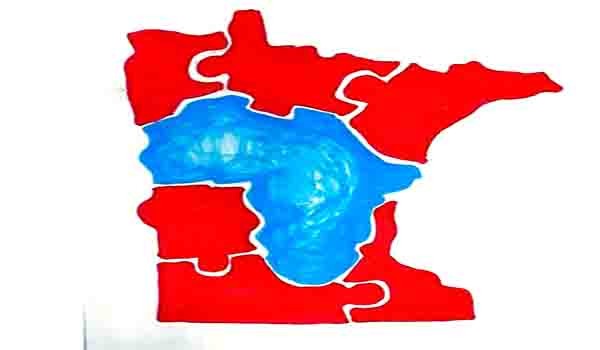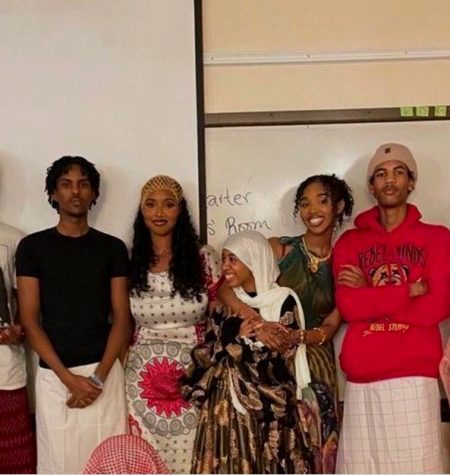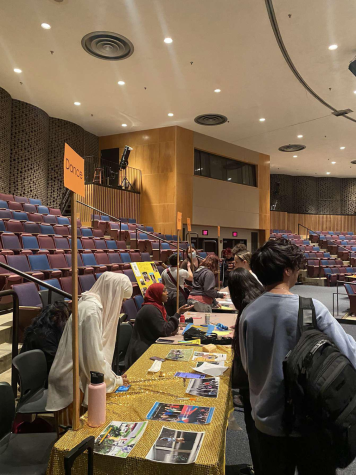Samatar Leaves Legacy of Activism

September 16, 2013
Hussein Samatar, a school board member and the first Somali elected official in Minnesota, died on August 25th.
Samatar believed strongly in the value of diversity in the school setting and contributed significantly to the cultural competence of the Minneapolis School System.
Samatar was born in Somalia and graduated from Somalia’s National University in 1992. He was forced to flee the country four days after his graduation when civil war broke out. He moved to Minnesota, taught himself English and earned his Masters of Business from Hamline University.
He later founded the African Development Center (ADC), an organization dedicated to helping African refugees and immigrants succeed financially. While working in the ADC, he became aware of the gang activity and low graduation rate of Somali youth in the Minneapolis Public Schools.
In 2010, running unopposed, he won a seat on the Minneapolis Public School Board. Samatar’s election was nationally revered. “[His election] responds to the hope and aspiration and wishes of the Somali-American community,” political activist Mummin Barre told the Star Tribune.
“Hussein opened the door for others to walk through,” said DFL Chairman Ken Martin, also in an interview with the Star Tribune. “The number of Somali-born, American citizens who took part in this year’s Minneapolis caucus and conventions shows the Somali community is interested in electing leaders to follow in Hussein’s footsteps. His spirit and dedication to the Somali community will continue.”
Eric Schwartz, Dean at the Humphrey School of Public Affairs, spoke at Samatar’s funeral. He described Samatar’s contributions to the Minneapolis Public Schools in an email: “[Samatar] was…valuable because he could help bring to the board the perspective of new arrivals to the Twin Cities, who face special challenges but whose success in our school system is so very important to the future of Minnesota and to the country.”
Samatar was also aware of the challenges that Somali students face at South. In response to the South High incident on February 14th, Samatar held a news conference to raise awareness of some negative experiences of Somali students at South. He stressed the uniquely challenging experiences of a Somali student.
“The Somali American community is a new community to the state of Minnesota….[the community] is not only black, we are immigrants, we are Africans, and anybody that thinks that is easy, I want to speak to them,” he stated at the conference.
Samatar was diagnosed with leukemia in December of 2012, and went through two consecutive bone marrow transplants. He was hospitalized for two weeks over the summer and passed away on the 25th of August due to complications of his illness.
On September 11th, board member Carla Bates nominated Ubah Jama, Hussein’s wife to fill the vacant position in the school board. Rebecca Gagnon objected and ended the campaign. She worried that “we might be making an emotional decision.” The seat remains empty.
“Minneapolis Public Schools is challenged to do well by our Somali students and our Somali population in the city of Minneapolis and the lack of his leadership will hurt us,” Carla Bates told MinnPost. “It will matter.”
“Finally, he was such a valuable role model for others,” Schwartz offered, “demonstrating that community leaders in Minnesota — and everywhere — must come from all sectors of our increasingly diverse society.”




![A power outage on Friday May 12 before the start of the school day led many students to leave the building and miss parts of first, second and third hour. “[Staff at the front door] said the power might be on at 11, so [we should] come back to school at 11,” recalled freshman Riley Olson. “A lot of people went back home.” However, Principal Afolabi Runsewe claimed and maintains that students were told to stay in the commons and were never given the option to leave school.](https://www.shsoutherner.net/wp-content/uploads/2023/06/power-outage-475x356.png)






